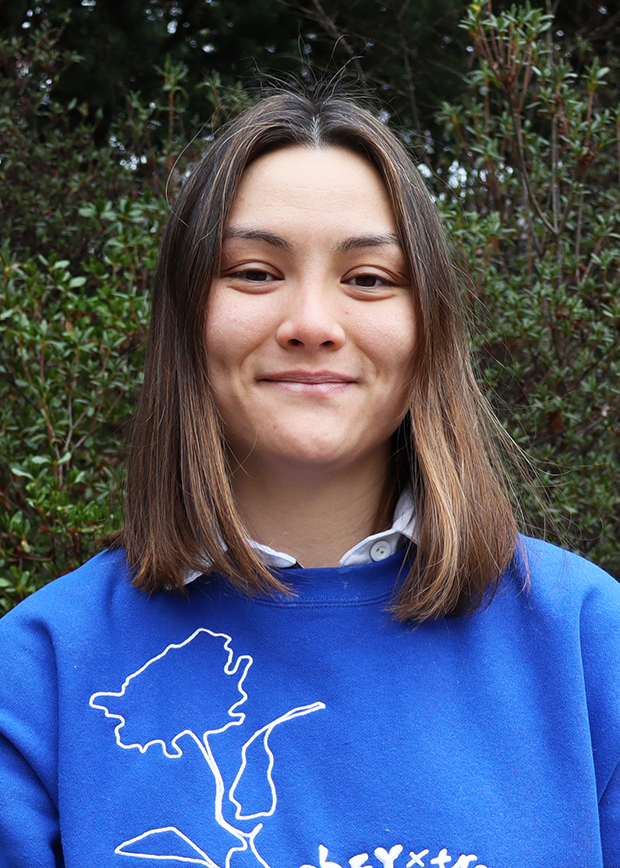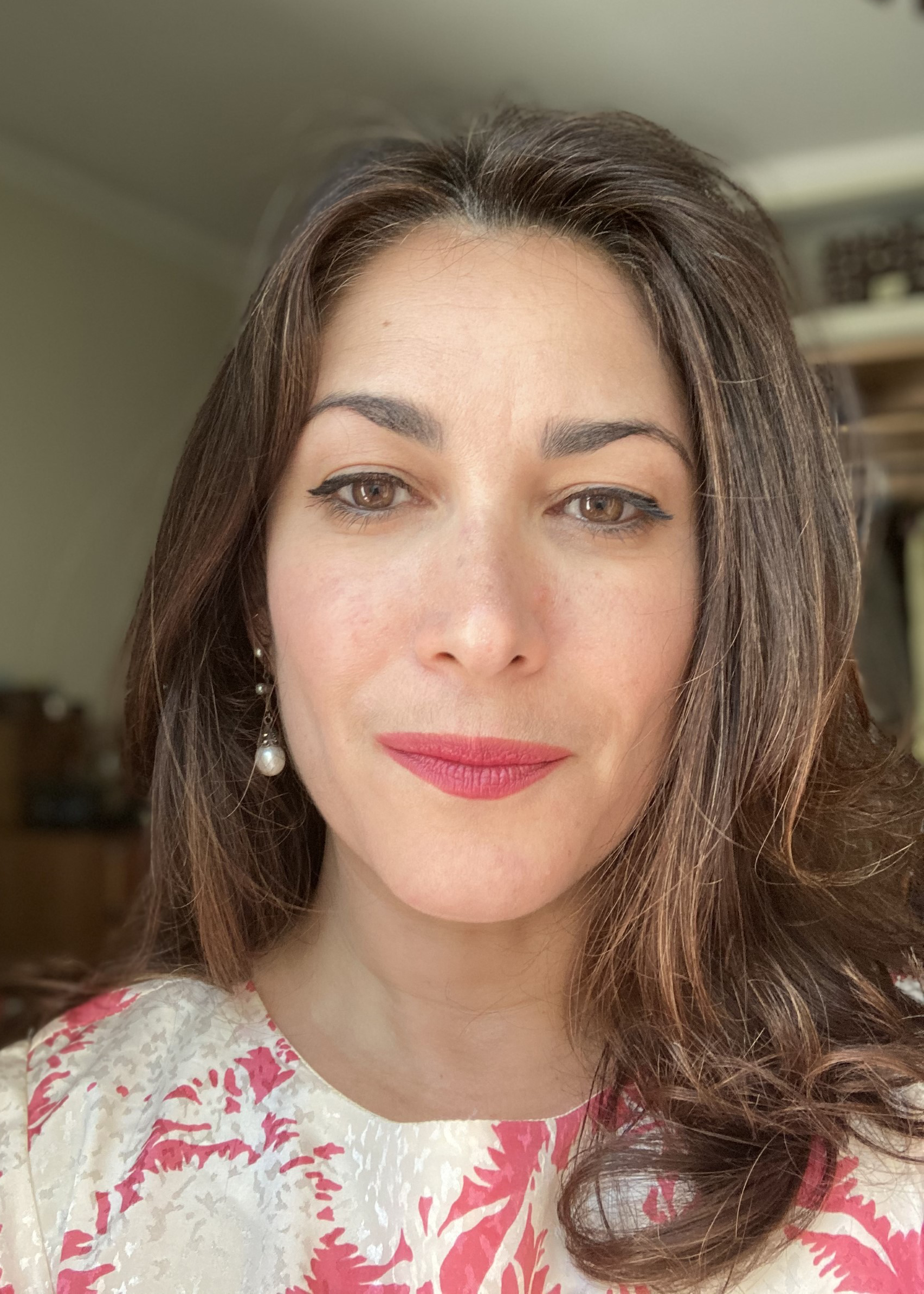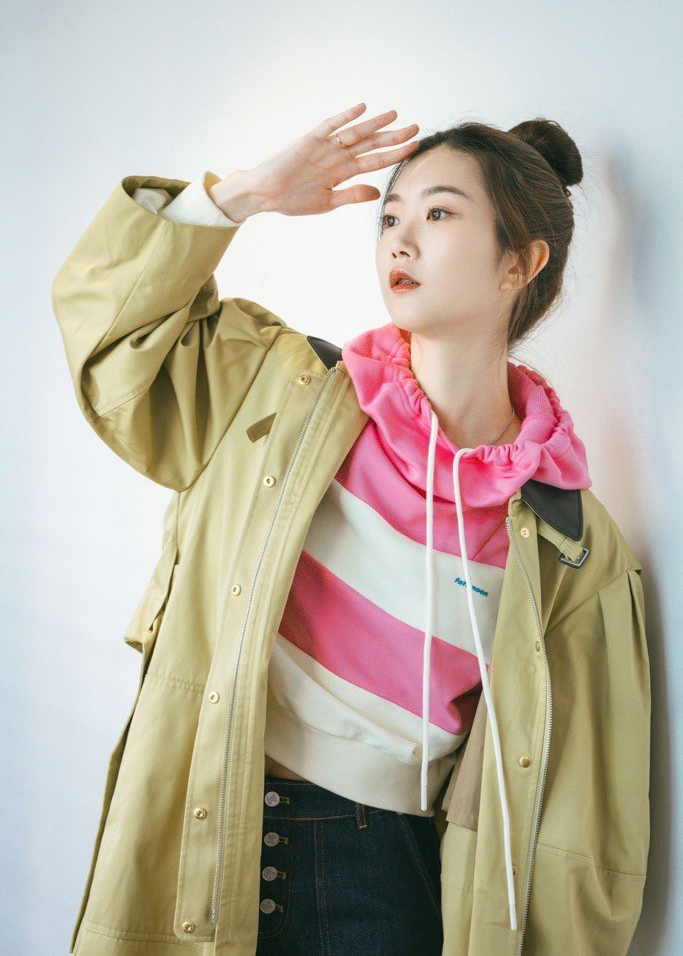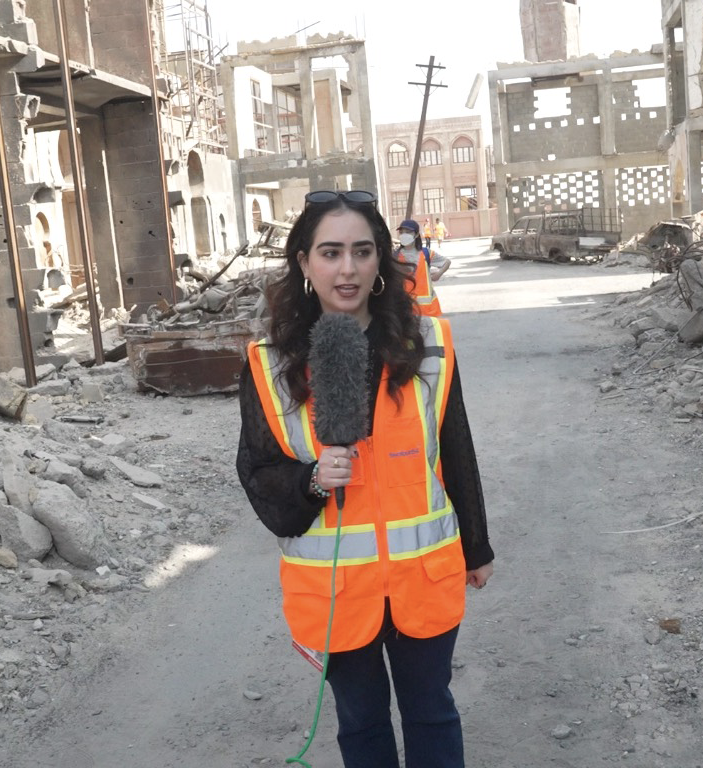Jianna Faner
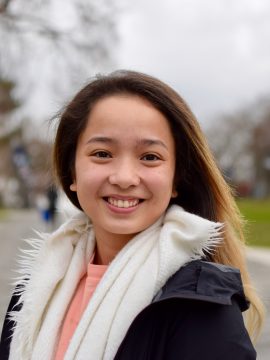
Why did you choose your program at UBC and what did you enjoy most about it?
I chose Arts One and then the Honours English programs because I loved reading and writing, which I did end up enjoying, but what I enjoyed the most was the built-in community of driven and curious peers who also happened to be lots of fun to be around as well.
What were some of your most meaningful experiences at UBC?
Too many to name! But being involved in the UBC English Students’ Association as a member, as part of the executive team, and on the editorial board of the Garden Statuary developed my ability to work as part of a team, and skills in editing and leadership. More than that, the ESA formed my community on campus.
What choices did you make at UBC that contributed to your career success / journey?
I participated in the UBC Arts Internship Program, where I got a position as a Communications Assistant with Canadian Women in the Literary Arts (CWILA). I also had a Work Learn position as Project Assistant with the Master of Public Policy & Global Affairs (MPPGA) program on campus for half of my degree. Both of these have been invaluable to my career success, and they’ve also directed my career journey in a surprising way.
What was your first job after graduation and what other jobs did you have before your current position?
My first job after graduation was as Communications & Development Coordinator at Dixon Transition Society. Other jobs I had (all of which I did while completing my degree) included: Programs & Communications Assistant at Mom2Mom Child Poverty Initiative Society, Project Assistant at MPPGA, and Communications Assistant at CWILA. I have since come back to UBC to pursue my law degree, and I have transitioned to a casual position at Dixon as a Women’s Support Worker.
Is your current career path as you originally intended? What challenges did you face in launching your career?
Coming into UBC I thought I was going to be a teacher and a writer, which I laugh about now, although I still am a writer in a lot of ways. I didn’t think I would be working in the non-profit sector, and I didn’t think I would be working so closely to the social justice sphere, but I’m happy with where I am and I’m glad I landed in this space. I found it challenging to identify what I wanted and could have in a career: I spent a lot of years listening to people ask what I was going to do with an arts degree, so I applied to a lot of positions I really would never have done or enjoyed. That does say a lot about the breadth of opportunity available to arts grads, though. The opportunities available to someone with an education in arts is both a gift and a curse!
What do you like about your current job and what do you find challenging? How does it relate to your degree?
Outside of law school, I am a Women’s Support Worker at Dixon House, an emergency shelter for women and their children fleeing violence. The challenges of the job are probably easy to imagine – the women I work with have experienced trauma and are in the process of navigating a tremendous upheaval in their lives, and many of them are also mothers (which is challenging even without the trauma). My degree helps me understand the systemic nature of the violence they have experienced and recognize that the women I work with are experts in their own lives, and my job is to meet them where they are. It’s a challenging from day-to-day, but I know from what I’ve learned from my degree that it’s a tremendous show of resilience for women to leave an abuser and rebuild their lives of violence.
From your experience, what has been the value of having an Arts degree?
The versatility. “What can’t you do with an Arts degree?” is a far better question than “What can you do with it?” because the answer to the latter question can be very long. Arts degree holders, and their skills, are so varied and versatile, but what makes them stand out is their ability to think critically about human issues and problems.
What advice would you give to students and alumni interested in breaking into your industry?
Let yourself care deeply and genuinely about the issues that make you tick. Be open and generous, while being mindful and respectful of your boundaries. The non-profit sector is full of passionate individuals, but we need people who can do this kind of work in a sustainable way. Boundary setting is an important part of this work.
What advice would you give to your first-year self?
It’s a privilege to learn and grow at UBC. Take advantage of everything you want and can, and then breathe it all in because these incredible experiences can go by so fast.
Jianna Faner



Why did you choose your program at UBC and what did you enjoy most about it?
I chose Arts One and then the Honours English programs because I loved reading and writing, which I did end up enjoying, but what I enjoyed the most was the built-in community of driven and curious peers who also happened to be lots of fun to be around as well.
What were some of your most meaningful experiences at UBC?
Too many to name! But being involved in the UBC English Students’ Association as a member, as part of the executive team, and on the editorial board of the Garden Statuary developed my ability to work as part of a team, and skills in editing and leadership. More than that, the ESA formed my community on campus.
What choices did you make at UBC that contributed to your career success / journey?
I participated in the UBC Arts Internship Program, where I got a position as a Communications Assistant with Canadian Women in the Literary Arts (CWILA). I also had a Work Learn position as Project Assistant with the Master of Public Policy & Global Affairs (MPPGA) program on campus for half of my degree. Both of these have been invaluable to my career success, and they’ve also directed my career journey in a surprising way.
What was your first job after graduation and what other jobs did you have before your current position?
My first job after graduation was as Communications & Development Coordinator at Dixon Transition Society. Other jobs I had (all of which I did while completing my degree) included: Programs & Communications Assistant at Mom2Mom Child Poverty Initiative Society, Project Assistant at MPPGA, and Communications Assistant at CWILA. I have since come back to UBC to pursue my law degree, and I have transitioned to a casual position at Dixon as a Women’s Support Worker.
Is your current career path as you originally intended? What challenges did you face in launching your career?
Coming into UBC I thought I was going to be a teacher and a writer, which I laugh about now, although I still am a writer in a lot of ways. I didn’t think I would be working in the non-profit sector, and I didn’t think I would be working so closely to the social justice sphere, but I’m happy with where I am and I’m glad I landed in this space. I found it challenging to identify what I wanted and could have in a career: I spent a lot of years listening to people ask what I was going to do with an arts degree, so I applied to a lot of positions I really would never have done or enjoyed. That does say a lot about the breadth of opportunity available to arts grads, though. The opportunities available to someone with an education in arts is both a gift and a curse!
What do you like about your current job and what do you find challenging? How does it relate to your degree?
Outside of law school, I am a Women’s Support Worker at Dixon House, an emergency shelter for women and their children fleeing violence. The challenges of the job are probably easy to imagine – the women I work with have experienced trauma and are in the process of navigating a tremendous upheaval in their lives, and many of them are also mothers (which is challenging even without the trauma). My degree helps me understand the systemic nature of the violence they have experienced and recognize that the women I work with are experts in their own lives, and my job is to meet them where they are. It’s a challenging from day-to-day, but I know from what I’ve learned from my degree that it’s a tremendous show of resilience for women to leave an abuser and rebuild their lives of violence.
From your experience, what has been the value of having an Arts degree?
The versatility. “What can’t you do with an Arts degree?” is a far better question than “What can you do with it?” because the answer to the latter question can be very long. Arts degree holders, and their skills, are so varied and versatile, but what makes them stand out is their ability to think critically about human issues and problems.
What advice would you give to students and alumni interested in breaking into your industry?
Let yourself care deeply and genuinely about the issues that make you tick. Be open and generous, while being mindful and respectful of your boundaries. The non-profit sector is full of passionate individuals, but we need people who can do this kind of work in a sustainable way. Boundary setting is an important part of this work.
What advice would you give to your first-year self?
It’s a privilege to learn and grow at UBC. Take advantage of everything you want and can, and then breathe it all in because these incredible experiences can go by so fast.
